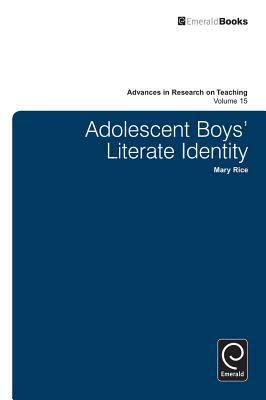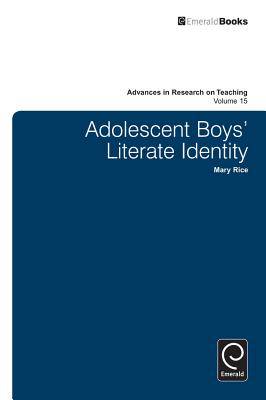
- Afhalen na 1 uur in een winkel met voorraad
- Gratis thuislevering in België vanaf € 30
- Ruim aanbod met 7 miljoen producten
- Afhalen na 1 uur in een winkel met voorraad
- Gratis thuislevering in België vanaf € 30
- Ruim aanbod met 7 miljoen producten
Zoeken
Adolescent Boy's Literate Identity
€ 122,95
+ 245 punten
Omschrijving
This book is the representation of a narrative inquiry conducted with five ninth grade boys that were identified as displaying multiple literacies, looking specifically at how these boys storied their literate identities. After the stories were collected, the author conducted several negotiation sessions with the boys and their parents at the school, as well as in their homes. These negotiations facilitated a methodological concept that the book terms distillation: an interim step for determining which narratives in an inquiry are emblematic. Several lenses for conceptualizing the stories of these boys were made evident during the research. An analysis of the collected stories revealed that the boys' stories moved beyond current conceptions of either identity or literacy alone and instead offered a way of defining literate identity as simultaneously being and doing literacy. In light of this definition, the boys' stories revealed plotlines that together described literate identity as a form of capital. The question of how the boys story themselves, the original research question, is ultimately answered using a meta-narrative, or archetype, where a hero distributes a boon, or gift to his society. The implications for this research include a need to examine classroom space in order to facilitate the deployment of literate identity capital, as well as space for living out the meta-narratives that these boys are composing.
Specificaties
Betrokkenen
- Uitgeverij:
Inhoud
- Aantal bladzijden:
- 152
- Taal:
- Engels
- Reeks:
- Reeksnummer:
- nr. 15
Eigenschappen
- Productcode (EAN):
- 9780857249050
- Verschijningsdatum:
- 27/05/2011
- Uitvoering:
- Hardcover
- Formaat:
- Genaaid
- Afmetingen:
- 156 mm x 234 mm
- Gewicht:
- 403 g

Alleen bij Standaard Boekhandel
+ 245 punten op je klantenkaart van Standaard Boekhandel
Beoordelingen
We publiceren alleen reviews die voldoen aan de voorwaarden voor reviews. Bekijk onze voorwaarden voor reviews.










